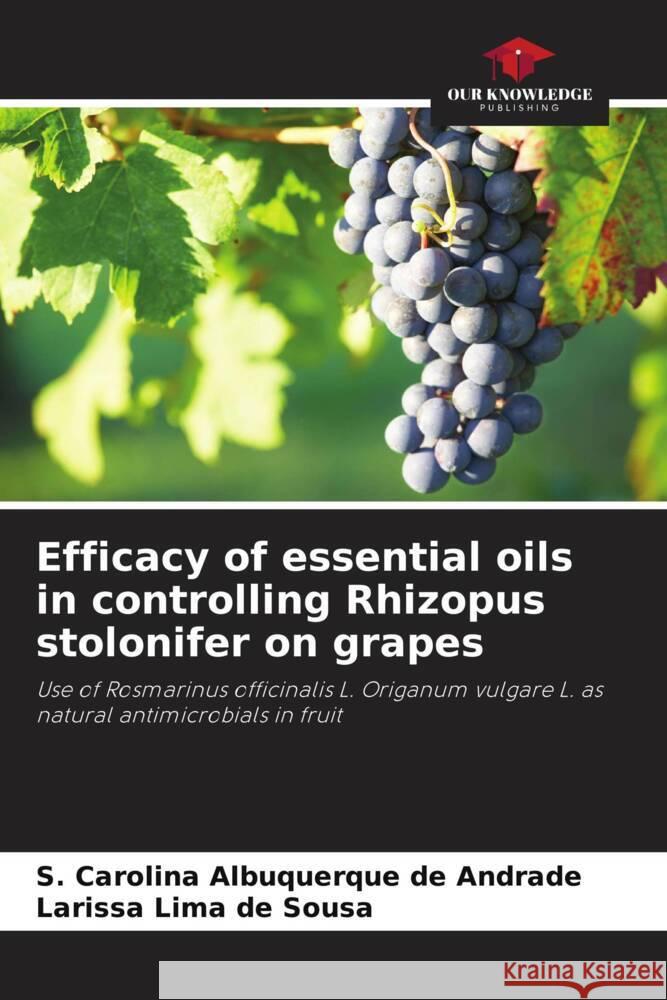Efficacy of essential oils in controlling Rhizopus stolonifer on grapes » książka
Efficacy of essential oils in controlling Rhizopus stolonifer on grapes
ISBN-13: 9786208217754 / Angielski / Miękka / 2024 / 52 str.
Efficacy of essential oils in controlling Rhizopus stolonifer on grapes
ISBN-13: 9786208217754 / Angielski / Miękka / 2024 / 52 str.
(netto: 170,37 VAT: 5%)
Najniższa cena z 30 dni: 178,89
ok. 10-14 dni roboczych
Bez gwarancji dostawy przed świętami
Darmowa dostawa!
The Isabel grape is one of the main varieties of Vitis labrusca, which has an accelerated reduction in post-harvest quality, due to weight loss due to softening of the tissues, darkening of the skin and the occurrence of off-flavors resulting from the senescence process, as well as sensitivity to dehydration and fungal infection during handling and processing, limiting commercialization. The control of post-harvest fungal diseases is carried out using synthetic fungicides. These chemical compounds have been withdrawn from the market due to possible toxicological risks. Due to the negative impact of these fungicides, the search for effective alternative methods in the control and development of phytopathogens has stimulated research into the use of essential oils for application to food. In this context, the present study evaluated the efficacy of applying the essential oils of Origanum vulgare L. (OV) and Rosmarinus officinalis L. (RO) alone and in combination, as inhibitors on the post-harvest fungus Rizhopus stolonifer "in vitro", the influence on the autochthonous microbiota of Isabel grapes (Vitis labrusca L.), and the physical and physicochemical characteristics of the fruit.











